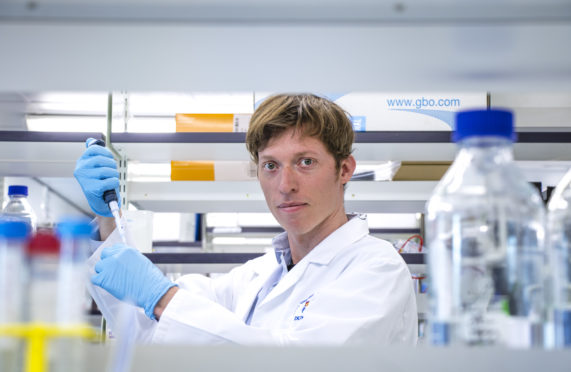A scientist has been given a £1.4 million boost as he looks to help the fight against blood cancers.
Dr Kasper Rasmussen is developing research to stop cellular warfare in DNA which can lead to blood cancers such as Leukaemia.
To aid his efforts Cancer Research UK has awarded the Dundee University scientist £1.4 million.
He is one of just five researchers this year who have been awarded a prestigious Career Development Fellowship by the charity.
Dr Rasmussen is to use the money to set up a research group in Dundee to study the biological warfare taking place between two enzymes.
He said: “I’m very excited by the possibility to keep on exploring the interplay between the TET2 and the DNMT3A enzymes.
“These opposing forces are in a constant state of flux but when you mutate them, they create similar pre-malignant cells in the blood which can develop into full blown Leukaemia or Myeloid Dysplastic Syndromes.
“The need to develop a deeper understanding of how DNA methylation affects gene expression is greater than ever.
“Currently, those suffering from Acute Myeloid Leukaemia, one of the diseases these mutations promote, are treated with chemotherapy but sadly more often than not they die because of disease relapse that cannot be stopped in its track. ”
Cancer Research UK gives the fellowship awards to outstanding scientists to support them in establishing their own cancer research group.
World leaders in research have been discovered through the charity’s fellowship awards and they have produced the highest quality work.
Karen Noble, Cancer Research UK’s head of research careers, said: “Dr Rasmussen’s research will help us to understand what goes wrong in the body to cause this aggressive blood cancer.
“If we’re to bring forward the day when all cancers are cured, it’s vital we recruit the best people and help them grow at every stage of their career.
“Our fellows make crucial discoveries that increase our fundamental understanding of cancer and help develop new and better cancer medicines, tests and treatments.
“We may be able to develop more targeted and effective treatments for the disease with fewer side effects, helping to improve patients’ quality of life.”









